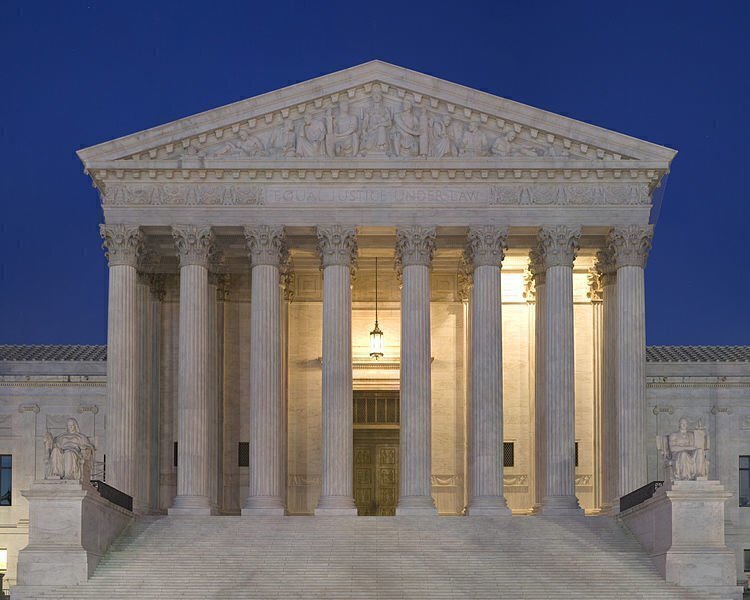On Tuesday, the Supreme Court heard oral arguments in two cases that dealt with the Eighth Amendment’s prohibition on cruel and unusual punishment.
Discussions about the Eighth Amendment have been reanimated in light of Justices Stephen Breyer and Ruth Bader Ginsburg’s recent dissent in Glossip v. Gross. They argued that it is likely that any form of the death penalty violates the Constitution, and expressed interest in hearing a case in which the Court can rule on that question.
While the Court has yet to grant certiorari in such a case, both Montgomery v. Louisiana and Hurst v. Florida raise serious questions about the nature of crime and punishment in America.
In 2012, the Court ruled in Miller v. Alabama that all mandatory sentencing schemes which require that “all children convicted of homicide receive lifetime incarcerations without the possibility of parole” violate the Eighth Amendment ban on cruel and unusual punishment. In light of this ruling, Henry Montgomery—who, since 1963, has been serving a mandatory life sentence after being convicted of murder at age 17—challenged his sentence as violating the standard set in Miller.
The Court established in 1989 the standard it follows in determining when new rules of law, like the Miller decision, apply retroactively. To pass the so-called Teague test, a new rule must either completely prohibit a punishment that can be imposed on a class of defendants, or be a “watershed rule of criminal procedure” impacting the fundamental fairness of criminal proceedings.
The Louisiana Supreme Court decided that the rule in Miller does not meet either of those thresholds. It determined that, since the rule only bans mandatory life sentencing schemes and not all juvenile life sentences for murderer, it does not trigger the first part of the Teague test, nor does it amount to a “watershed rule.” So the court rejected Montgomery’s claim.
Montgomery’s lawyers contend that the Louisiana court was wrong on both counts, and argue that the decision in Miller ought to be retroactive under Teague. While this case deals in technicalities, the Supreme Court’s final ruling could have important effects on Eighth Amendment jurisprudence and rules governing the retroactivity of new rulings.
Oral arguments focused largely on the question of whether or not the Court has the authority to hear the case—leading Justice Breyer to wonder aloud whether someone still imprisoned for witchcraft would not be released, even though such convictions have been ruled unconstitutional. Ultimately, the Justice appeared narrowly divided on the merits of the case, suggesting Justice Anthony Kennedy may once again prove decisive.
The second case heard on Tuesday was Hurst v. Florida. In 1998, Timothy Hurst was arrested for murdering his co-worker and was sentenced to death in 2000. The case was appealed to the Florida Supreme Court because Hurst claimed that his lawyers did not effectively make clear to the jury the extent of his mental incapacities.
The Florida Supreme Court ordered that Hurst be given a retrial; in the new trial, the jury voted 7-5 that Hurst was guilty and eligible for the death penalty. Following Florida trial procedure, that recommendation was sent to the judge, who ultimately affirmed the sentence.
The question at hand is whether this sentencing scheme violates Ring v. Arizona (2002), in which the Court ruled that a capital sentencing scheme violates the Sixth Amendment if it gives the judge, rather than the jury, the authority to determine whether the facts of the case are sufficient to impose the death penalty.
Hurst’s lawyers explain that reigning precedent in Florida demands that “aggravating factors” of the crime need to be identified in order for the defendant to be eligible for the death penalty. The jury in Hurst’s trial did not specifically articulate the aggravating factors that made him eligible for the death penalty, while the judge who ultimately decided Hurst’s sentence did. Since the judge rather than the jury identified the aggravating factors, which are necessary for a death penalty conviction, Hurst’s lawyers assert that the scheme violates Ring.
Briefs were filed by, among others, the Constitutional Accountability Center and the American Civil Liberties Union. They assert that, in addition to failing to meet the standard under Ring, Florida’s sentencing scheme violates the Sixth and Eighth Amendments because it does not require a unanimous jury for capital sentences.
A decision striking down Hurst’s conviction which invalidates Florida’s capital punishment scheme would be consequential for the state’s trial proceedings, which has the second largest death row in the nation with 401 prisoners.
At oral arguments, there appeared to be a majority in favor of striking down the Florida system. Justices Ginsburg and Elena Kagan, among others, signaled concern about the jury’s reduced role in determining death-penalty eligibility and the lack of a jury-vote requirement larger than a simple majority.
Jonathan Stahl is an intern at the National Constitution Center. He is also a senior at the University of Pennsylvania, majoring in politics, philosophy and economics.








